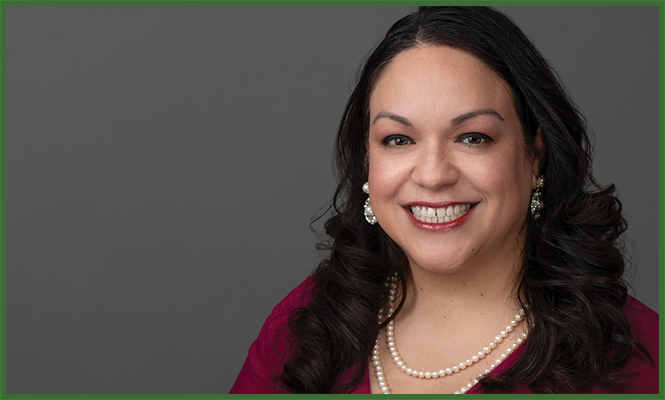Competition, costs and a heap of deactivated cannabis cards are harshing the vibe of Utah's medical marijuana program.
Growing Pains
By Benjamin Wood @BjaminWoodBy Benjamin Wood
More than 66,000 Utahns hold an active medical cannabis card—according to the latest numbers from the Utah Department of Health and Human Services—providing them with the state's legal blessing to purchase, possess and consume THC.
But another 30,000—roughly—have allowed their cards to expire and their participation in the sanctioned market to lapse, a worrying trend for proponents that is variously attributed to the out-of-pocket costs borne by cannabis patients, the limited availability of willing medical providers, cannabis dispensaries and specific products, as well as competition from both the traditional, unsanctioned marijuana market and new "Delta" THC offerings derived from hemp that can be sold over the counter without a cannabis card due to a series of federal and state loopholes.
After launching in 2019 in the wake of a successful ballot initiative, Utah's medical cannabis program quickly blew past government projections for both patient counts and dollar sales. But Tim Pickett, founder and CEO of KindlyMD—formerly known as the Utah Therapeutic Health Center—said he believes the state is approaching a plateau as the medical marijuana effort moves past its early, experimental phase and into an era of increasing medical, corporate and social legitimacy.
"Everything has somewhat calmed down," Pickett said. "There was a hope that we'd be at 100,000 patients now, or approaching that."
During the 2023 legislative session, lawmakers voted to reduce the frequency—and by extension, cost—of card renewals, allowing providers to issue cannabis referrals of up to one year and swapping the numerical cap on patients that any one medical provider can oversee to a floating 1.5% of the state's overall patient population.
Pickett said the changes should help with—but not eliminate—the issue of cannabis patients seeing a different medical provider each time they renew their card and instead help to create more scenarios where an enduring doctor-patient relationship can be established. But he added that it's a "double-edged sword," as the requirements for less-frequent card renewals will likely mean less-frequent interaction between cannabis consumers and duly licensed medical professionals.
"We will now be able to see patients for less money, for more holistic care and not have to rotate through providers for all of our patients," Pickett said. "Because it's a cash-pay system, patients will demand to go as long as they possibly can [without renewal]. Is that good for patients? My fear is that it runs the risk of delegitimizing medical cannabis as a true medicine."
On the production and dispensary side, monthly sales figures continue to climb steadily and Utah's cumulative haul from legal marijuana purchases will soon cross $250 million—if it hasn't by the time this article is published—according to reports released by the Department of Health. New product lines have come online, as well as more robust delivery services and competitive pricing levels.
"Our prices are not on the higher end, but they're not on the lower end," said Sen. Luz Escamilla, D-Salt Lake City. "We're pretty much in the middle."
And last month, Curaleaf—an international consumer cannabis company—announced its acquisition of Deseret Wellness and its three dispensary locations in Utah for $20 million. The transaction adds to Curaleaf's one existing dispensary in the Beehive State, as well as its roughly 150 locations nationwide.
"Utah is an important emerging market for Curaleaf, and we are excited to expand our medical retail footprint in the state," Curaleaf CEO Matt Darin said in a prepared statement announcing the acquisition. "Deseret has built a strong and profitable business, and we believe the combination of our two companies will enhance our competitive position in the Utah market."
Rolling Paperwork
Pickett emphasized the need for greater coordination between insurance providers and medical marijuana practitioners. The state's major health care institutions have largely avoided medical marijuana—pushing the majority of cannabis patients to cash referral clinics—but some traditional physicians have found success incorporating THC into their practices.
"If you're billing the insurance for the visit, that patient does not count toward the cap," Pickett said. "I've been lobbying for two years for this particular thing. We got some traction on it, and we feel like it legitimizes the legitimate providers."
But trying to build up insurance billing in the specialty clinics—without the benefit of a hospital network or legacy practice—is burdensome, Pickett said, requiring compliance and communication with a host of credentialing agencies and insurance carriers. He said he'd like to see the broader medical community accept cannabis as part of total health care—not just to bring the cost of clinic visits down to a typical co-pay, but also to make sure that cannabis patients are having their other medical needs met.
"Our jive is to see how many patients we can switch from only medical cannabis to a holistic health care program," Pickett said. "They still need colonoscopies. They still need mammograms. They might be using medical cannabis, and that's OK—all of those are OK together."
Escamilla—who runs point on cannabis legislation for the Utah Senate—said lawmakers would also like to see medical cannabis better integrated into traditional health care services. And they have taken steps each year to facilitate that shift, she said. In addition to exempting insurance-billed patients from cap counts, recent changes to state law require Utah's universities to incorporate cannabis training into their medical degree programs.
"We're moving in the right direction," Escamilla said. "I just wish the federal government could help on this, but I'm also proud that the state of Utah is treating this from a medical perspective."
In addition to Utah's 66,000 cannabis patients, the state's program boasts just shy of 1,000 qualified medical providers, or QMPs, 725 pharmacy (dispensary) agents and 80 pharmacy medical providers, or PMPs. But the ratios are skewed by the rules around patient caps, with Pickett saying KindlyMD could dramatically reduce the number of QMPs it works with should regulatory hurdles be removed.
"We have over 60 providers," Pickett said. "We could literally take care of the number of patients we have with seven or eight providers, and that's better patient care."
High on Supply
The other wrinkle in the state's medical marijuana story is the emergence and proliferation of hemp-derived Delta THC formulations. Despite containing relatively high levels of THC and producing comparable psychoactive effects to traditional marijuana, Delta 9 (or 8, or 10, etc.) can be legally sold and purchased outside of strictly regulated dispensaries.
"These products retail at normal pharmacies—beyond just the vape shops, these are products in the apothecary up the street," Pickett said. "It's almost like it's modifying the [medical cannabis] program without legislation."
Delta THC is divisive within the broader marijuana community and often denigrated as a "synthetic." But Pickett said he came to rethink his attitude toward hemp-derived medicines after creating his own formulation and registering it with the state, which required testing and other safety controls.
State law demands strict separation between clinical referrals and cannabis dispensary sales. But card clinics are able to sell Delta formulations directly to their patients, opening new sources of revenue for providers while offering a treatment option to patients that doesn't require full participation in the medical program, or that could be a stepping stone to obtaining a "green" card (Pickett jokingly described Delta 9 as a "gateway drug" to marijuana).
"Sometimes these patients will have tried a product like that over the counter and that's what made them interested in medical cannabis to begin with," Pickett said. "Here's something your aunt can try today without a card and see if they like it, if it's useful."
Pickett couldn't speak to the effect that the hemp-derived THC market is having on cannabis dispensary sales, but he said his patients are increasingly asking about Delta formulations. He said some individuals may find that the cannabinoids (CBD, CBG, CBN, etc.) contained in over-the-counter options are sufficient to treat their symptoms without a medical card.
But he added that hemp-derived THC will still trigger a drug test, and a patient could be vulnerable without the legal protections awarded to cardholders.
"As providers, we treat those just like any other medical cannabis product," he said. "We are starting to not distinguish between the two."
The trends further entrench the mainstream use of marijuana as a medical—if not recreational-adjacent—product in the Beehive State. Card clinics are operating more and more like primary care facilities, while traditional physicians are growing more and more comfortable with referring their patients to cannabis pharmacies.
And those pharmacies are operating more and more like adult-use dispensaries (they even accept debit cards now) while Delta THC is being openly sold in retail settings with a level of convenience comparable to a six-pack of beer.
The language around cannabis consumption is also growing increasingly corporatized. When Curaleaf announced its acquisition of Deseret Wellness—making it the largest cannabis-related entity in the state—there was obviously no talk at all of ripping bongs and rolling joints, but also relatively little talk of patient care and medical treatment.
Instead, the press release focused on market share and earnings potential.
"This deal represents the largest cannabis retail change of ownership in the state's history and bolsters our strong position in the market with an attractive portfolio of retail assets," said Curaleaf executive chairman Boris Jordan.
In some ways, the rapid success of the state's program can make the once burning-hot topic of medical marijuana seem politically dried out, like a hard-partying college friend who grew up and got a job. Escamilla noted that the now-annual legislation adjusting the cannabis program tends to pass with robust, bipartisan majorities—if not near-unanimous support—and while there remain skeptical holdouts on the Hill, she said, most lawmakers are listening to their constituents' experiences and the feedback from medical and industry experts.
And while she and her colleagues will continue to pursue improvements to cannabis access over time, she said the conversation could shift to other areas of drug decriminalization—like magic mushrooms.
"I tried a psilocybin bill," Escamilla said, "and I will continue to work on that."
More by Benjamin Wood
-
‘Festival street,' Green Loop and transit-oriented density anchor latest SLC plans for west downtown.
Arrested Development
- Apr 17, 2024
-
Former Salt Lake City mayor and celebrated Utah Democrat Ted Wilson dies at age 84.
Ted Led
- Apr 11, 2024
-
Salt Lakers are about to miss an opportunity for reconnection over and under I-15.
Small Lake City
- Mar 27, 2024
- More »
Latest in Cover Story
Readers also liked…
-
Forget the family pedigree—Robert F. Kennedy Jr should not be the next president of the United States
Trojan Horse
- Jun 21, 2023
-
Women decry harassment and toxic culture at St. George auto dealership
Men at Work
- Oct 11, 2023






